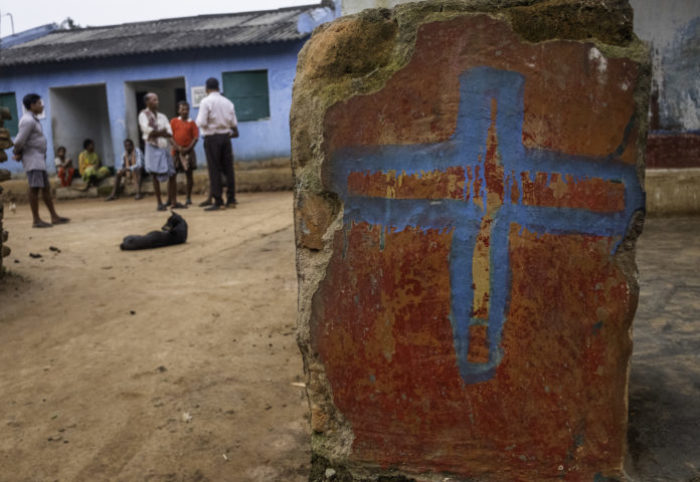
A Christian couple in India has been sentenced to five years in prison under Uttar Pradesh’s “anti-conversion” law, reportedly the first sentence of its kind in the country.
Jose and Sheeja Pappachan were convicted after they were accused of trying to coerce individuals into converting to Christianity, a verdict that the Christian community views as biased.
The sentencing by a special court in Ambedkar Nagar District included a fine of 25,000 rupees ($300) each, according to The Times of India.
A.C. Michael, the national coordinator of the United Christian Forum who monitors anti-conversion cases, criticized the judgment and said the evidence presented did not substantiate the charges of conversion.
“This is the first time we have encountered such a sentence for a suspected conversion attempt,” Michael told UCA News. The conviction “for a suspected attempt to convert will not stand the scrutiny of a higher court,” he said.
The Uttar Pradesh anti-conversion law was amended in 2024 to allow third-party complaints against alleged conversion activities. Only alleged victims or close family members were permitted to file a complaint in its original version.
The complainant in the case was Chandrika Prasad Upadhyay, a member of the Hindu nationalist Bharatiya Janata Party and a state lawmaker. In January 2023, she accused the couple of targeting vulnerable communities in the Shahpur Firoz area, inhabited mainly by Dalits or those who are from the lowest “caste.” She alleged the couple held an event aimed at mass conversions on Christmas Day 2022.
During the trial, the couple stated that they intended to offer education and promote sobriety, not to convert individuals coercively. They said they distributed copies of the Bible, organized educational assemblies and conducted community meals without any intent of allurement.
The police charged the couple based on eyewitness accounts.
The court upheld the charges under the Uttar Pradesh Prohibition of Unlawful Conversion of Religion Act, coupled with the Scheduled Castes and Scheduled Tribes (Prevention of Atrocities) Act.
After the couple spent eight months in detention as undertrials, the state’s High Court released them on bail in September 2023 on the basis that “providing good teachings, distributing the Holy Bible, encouraging children to get an education, organizing assemblies of villagers and conducting bhandaras [community meals], instructing villagers not to argue and also not drink liquor does not amount to allurement,” noted the United Kingdom-based watchdog Christian Solidarity Worldwide.
In a statement released last month, the UCF said it recorded 834 verified acts of violence and intimidation against Christians in the country last year. The number rose from 127 incidents in 2014.
Uttar Pradesh witnessed at least 209 attacks on Christians in 2024, according to UCF.
At least 100 Christians are in jail across the country on accusations of “forcible” conversion, “with bail repeatedly denied,” UCF said, adding, “The justice process has become the punishment.”
Christians, who represent 2.3% of India’s population compared to Hindus at nearly 80%, often face attacks under the pretext of stopping “forcible” conversions to Christianity. These incidents are often incited by Hindu nationalist rhetoric.








